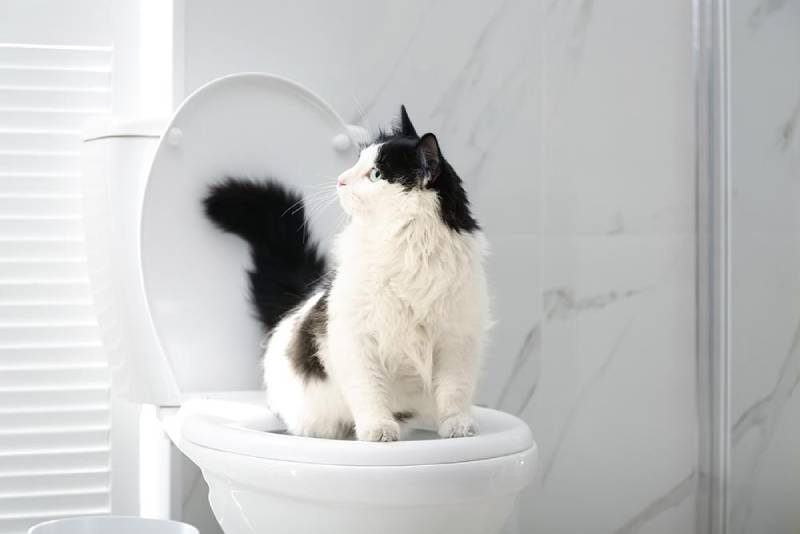Potential Risks of Flushing Cat Poop Down Your Toilet - Advice for Safer Handling
Potential Risks of Flushing Cat Poop Down Your Toilet - Advice for Safer Handling
Blog Article
Everybody is bound to have their own individual conception involving Can You Flush Cat Poop Down The Toilet?.

Introduction
As feline owners, it's important to bear in mind exactly how we deal with our feline close friends' waste. While it may appear practical to purge pet cat poop down the commode, this technique can have detrimental repercussions for both the atmosphere and human health and wellness.
Environmental Impact
Purging cat poop presents dangerous microorganisms and parasites into the water system, posturing a considerable danger to marine ecosystems. These impurities can negatively affect aquatic life and concession water top quality.
Health Risks
In addition to environmental worries, purging pet cat waste can additionally posture wellness threats to people. Feline feces might contain Toxoplasma gondii, a parasite that can trigger toxoplasmosis-- a possibly extreme ailment, specifically for expectant females and people with damaged immune systems.
Alternatives to Flushing
Thankfully, there are safer and more accountable ways to deal with cat poop. Take into consideration the complying with choices:
1. Scoop and Dispose in Trash
The most typical method of taking care of cat poop is to scoop it right into an eco-friendly bag and throw it in the garbage. Be sure to use a dedicated litter scoop and get rid of the waste promptly.
2. Usage Biodegradable Litter
Go with naturally degradable cat clutter made from materials such as corn or wheat. These litters are environmentally friendly and can be securely thrown away in the trash.
3. Hide in the Yard
If you have a backyard, take into consideration burying feline waste in an assigned location away from veggie yards and water sources. Be sure to dig deep adequate to avoid contamination of groundwater.
4. Install a Pet Waste Disposal System
Purchase an animal garbage disposal system specifically created for feline waste. These systems make use of enzymes to break down the waste, reducing odor and environmental impact.
Verdict
Accountable pet possession expands past providing food and shelter-- it also includes correct waste management. By refraining from flushing feline poop down the bathroom and going with different disposal methods, we can reduce our environmental footprint and secure human health and wellness.
Why You Should Never Flush Cat Poop Down the Toilet
A rose by any other name might smell as sweet, but not all poop is created equal. Toilets, and our sewage systems, are designed for human excrement, not animal waste. It might seem like it couldn’t hurt to toss cat feces into the loo, but it’s not a good idea to flush cat poop in the toilet.
First and foremost, assuming your cat uses a litter box, any waste is going to have litter on it. And even the smallest amount of litter can wreak havoc on plumbing.
Over time, small amounts build up, filling up your septic system. Most litter sold today is clumping; it is made from a type of clay that hardens when it gets wet. Ever tried to scrape old clumps from the bottom of a litter box? You know just how cement-hard it can get!
Now imagine just a small clump of that stuck in your pipes. A simple de-clogger like Drano isn’t going to cut it. And that means it’s going to cost you big time to fix it.
Parasitic Contamination
Believe it or not, your healthy kitty may be harboring a nasty parasite. Only cats excrete Toxoplasma in their feces. Yet it rarely causes serious health issues in the cats that are infected. Most people will be fine too if infected. Only pregnant women and people with compromised immune systems are at risk. (If you’ve ever heard how women who are expecting are excused from litter cleaning duty, Toxoplasma is why.)
But other animals may have a problem if infected with the parasite. And human water treatment systems aren’t designed to handle it. As a result, the systems don’t remove the parasite before discharging wastewater into local waterways. Fish, shellfish, and other marine life — otters in particular — are susceptible to toxoplasma. If exposed, most will end up with brain damage and many will die.
Depending on the species of fish, they may end up on someone’s fish hook and, ultimately on someone’s dinner plate. If that someone has a chronic illness, they’re at risk.
Skip the Toilet Training
We know there are folks out there who like to toilet train their cats. And we give them props, it takes a lot of work. But thanks to the toxoplasma, it’s not a good idea.

I ran across that blog posting about Don’t flush cat feces down the toilet while scouting around the search engines. Are you aware of anybody else who is excited about the subject? Take a moment to share it. Thank you so much for taking the time to read it.
Click Here! Report this page